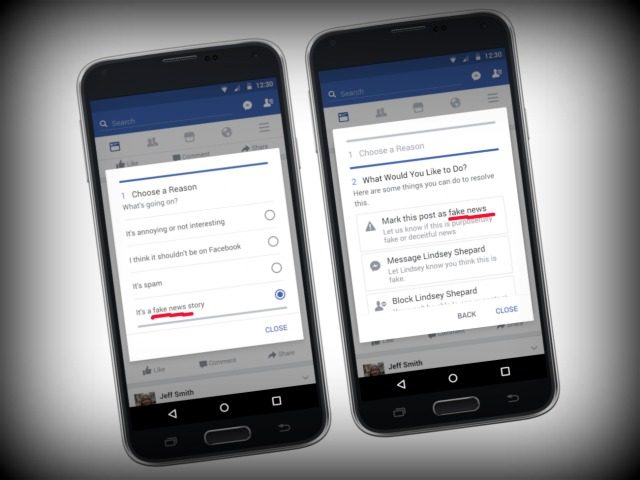A Parliamentary select committee has cited an analysis by the far left site Buzzfeed to imply so-called “fake news” influenced the U.S. election and demanded Facebook censors online content in the lead-up to the general election.
Damian Collins, a Conservative MP who chairs the Commons Culture, Media, and Sport Select Committee, demanded the social media platform start blocking or issuing warnings about material perceived to contain falsehoods.
“The risk is what happened in America,” Mr. Collins told The Guardian. “The top 20 fake news stories in the last three months of the election were shared more than the top 20 most shared stories that were true,” he added, seemingly referring to claims made by BuzzFeed.
Continuing: “The danger is, if for many people the main source of news is Facebook and if the news they get on Facebook is mostly fake news, they could be voting based on lies.”
In January, Mr. Collins’s committee announced an inquiry into fake news, following the lead of the German legislature, which threatened Facebook with fines in December 2016 if unfavourable content was not removed quickly.
German lawmakers claimed fake news could help populists in this year’s federal elections. In January, Facebook launched new features (pictured) in Germany to help users identify fake news. Such features have not come to the UK.
“Looking at some of the work that has been done so far, they don’t respond fast enough or at all to some of the user referrals they can get,” Mr. Collins continued. “They can spot quite quickly when something goes viral.
“They should then be able to check whether that story is true or not and, if it is fake, blocking it or alerting people to the fact that it is disputed. It can’t just be users referring the validity of the story. They [Facebook] have to make a judgment about whether a story is fake or not.”
Despite the MP’s demands, earlier this month Facebook insisted it could not be the “arbiter of truth”, deciding what is news, arguing there is no clear line between hoaxes, satire, and opinion.
Responding to Mr. Collins, a spokesman for Facebook said fake news was “an evolving challenge”.
“Improving news literacy is a global priority and false news runs counter to our mission to connect people with the stories that they find meaningful,” the spokesman said.
“We understand that we need to do our part to help people understand how to make decisions about which sources to trust.”

COMMENTS
Please let us know if you're having issues with commenting.